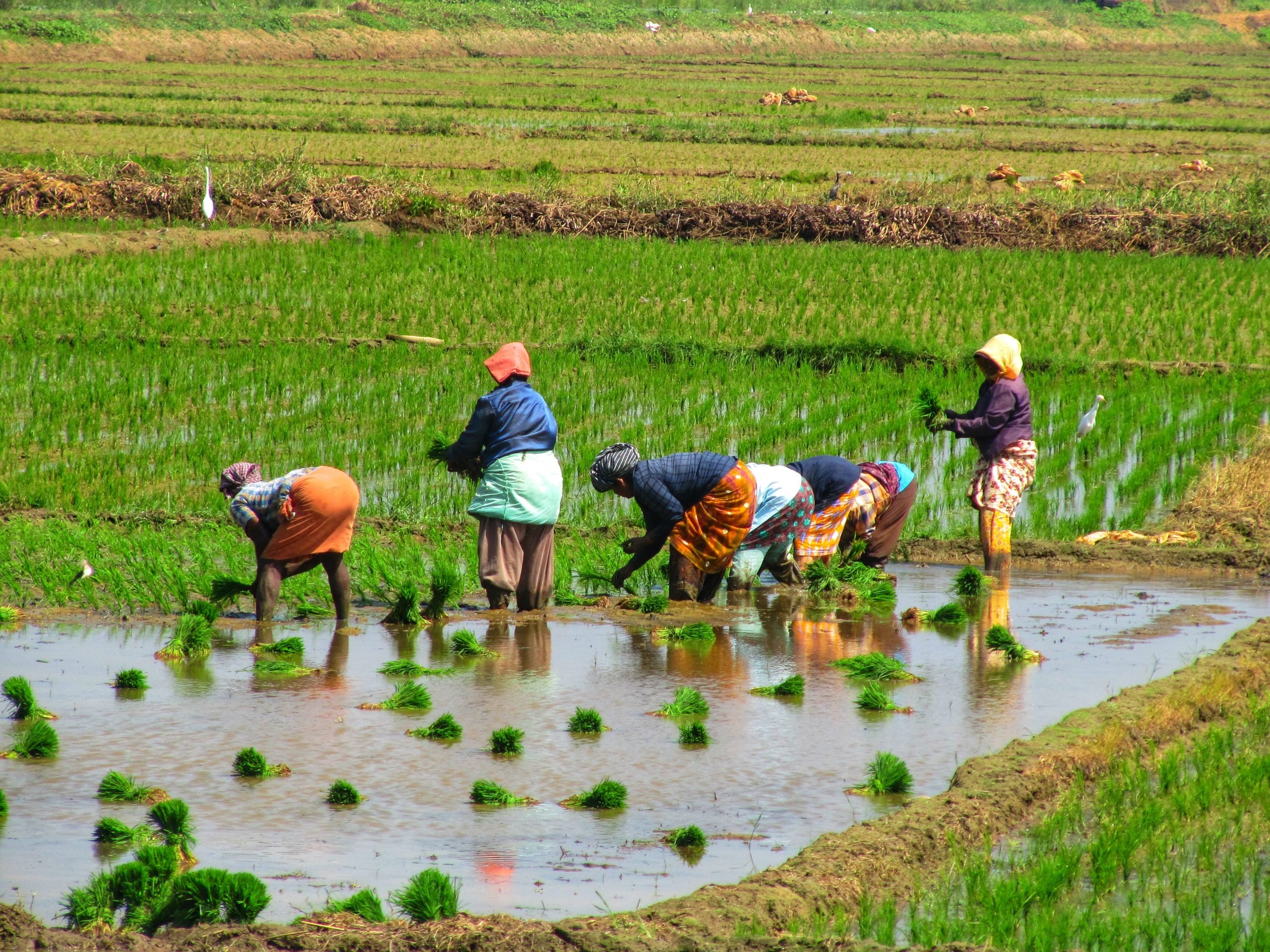In the case of rice, there has been a sharp drop in inflow from paddy-producing states like AP, Karnataka and Telangana.
Published Aug 20, 2022 | 6:05 PM ⚊ Updated Aug 20, 2022 | 6:05 PM

Kerala is largely dependent for its rice on other paddy-producing states. (Creative Commons)
It is likely be an expensive Onam this year in Kerala, with the prices of rice and other essential commodities rising rapidly a good two weeks ahead of the state’s widely-celebrated harvest festival.
Among food grains and pulses, there has been an unprecedented increase in the price of rice, largely because of a disruption in the flow from other paddy-cultivating states and the imposition of five percent GST on packaged grains.
Wholesale rice traders at the Chala market of Thiruvananthapuram and Valiyangadi in Kozhikode confirmed to South First that all rice varieties available in Kerala have seen an increase of at least ₹10 per kg.
A predominantly consumer state, Kerala depends heavily on other rice-producing states to meet its needs. Ironically, this is especially true during its popular harvest festival.
Raju Apsara, secretary of the state’s most prominent merchants’ body, the Kerala Vyapari Vyavasayi Ekopana Samithy, told South First there is an alarming shortage in rice supply to Kerala from paddy-cultivating states, mainly Andhra Pradesh and Telangana.
Kerala consumes 3.3 lakh tonnes of rice every month, including 1.83 lakh tonnes of polished white rice and 1.5 lakh tonnes of red matta rice.
Kerala depends almost entirely on other states in the case of white rice, while the Palakkad and Alappuzha districts cultivate specific amounts of red matta rice.
Besides rice, Kerala buys enormous amounts of pre-packed food items in the run-up to Onam, and this time the five percent GST has made the festival budget that much tighter for people.
Steep price rises are also visible in the case of cereals and pulses. As also sugar, jaggery and bananas, all of which form an integral part of Onam celebrations.
Earlier, only food products like branded rice were under the tax regime. When GST was introduced five years ago, authorities had exempted essential products like rice, vegetables, egg, and fish.
Even as the Kerala government sought a rollback of the five percent GST imposed on pre-packed and labelled food products, Chief Minister Pinarayi Vijayan had announced that the state would not implement the new tax.
That, however, remained an announcement, and now the rising prices are a bitter reality.
In the case of domestic rice production, intermediaries and the lack of a proper governmental support system make the situation complicated.
In addition, rice mills with a monopoly over local production engage in large-scale hoarding of stocks, creating an artificial shortage and causing prices to rise.
According to Dr S Usha, an expert on rice production, continuing natural calamities and adverse weather conditions in major rice-producing states like Karnataka, Andhra Pradesh and Telangana are now significantly impacting Kerala’s Onam festival preparations.
The increase in fuel prices and loading and unloading charges are also reflected in the food grain price.
Observers said the prevailing economic crisis in Sri Lanka also impacts food availability in Kerala.
Tamil Nadu is diverting large rice stocks there, resulting in the reduced availability of grains in the open market, they said.
The heavy rains caused by a delayed monsoon caused enormous damage to banana production in Kerala and that also may take the sheen off the Onam festivities.
The prices of red chilly, green gram and black gram too have seen significant increases.
